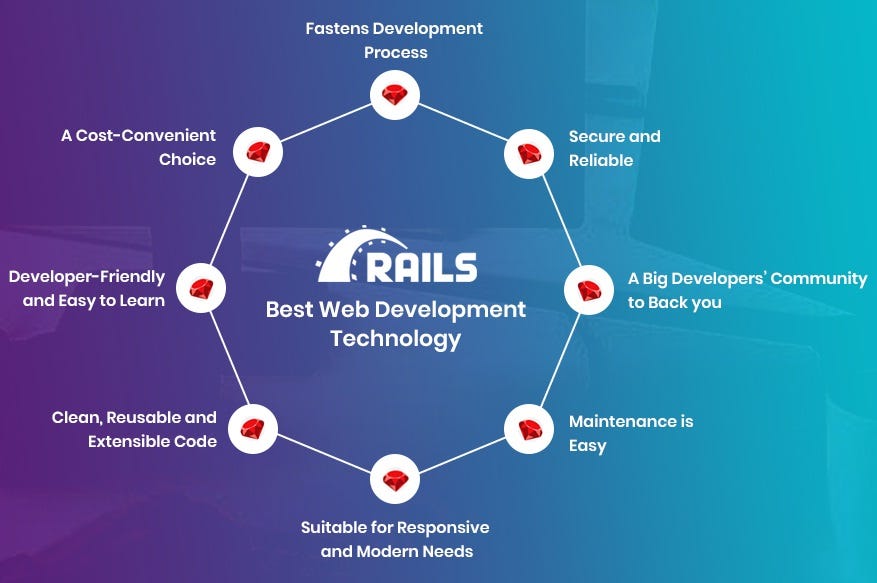Pulse of Information
Your source for the latest insights and updates.
Rails and Tales: Adventures in Ruby Development
Discover thrilling insights and tips in Ruby development! Join us on a wild journey with Rails and Tales—your adventure starts here!
Getting Started with Ruby on Rails: A Beginner's Guide
Getting started with Ruby on Rails can be an exciting journey for beginners wanting to dive into web development. Ruby on Rails, often simply referred to as Rails, is a powerful web application framework that allows developers to create fully functional web applications quickly. It follows the Convention over Configuration principle, which means that developers can focus on building features rather than spending time on setup. To begin, you should install Ruby on your machine, which forms the foundation of the Rails framework. Once Ruby is set up, you can install Rails using the Ruby package manager, gem, which makes the installation process seamless.
After successfully setting up your environment, it’s time to create your first Rails application. You can do this by running the command rails new myapp, where myapp is the name of your application. This command generates a structured file system with essential components needed for a Rails app. Next, you’ll want to navigate into your application directory and start the server using rails server. Open a web browser and go to http://localhost:3000 to see your application in action. As you progress, familiarize yourself with Rails' powerful features such as RESTful routing, Active Record for database management, and the concept of models, views, and controllers (MVC) to create a well-organized codebase.

10 Common Ruby on Rails Pitfalls and How to Avoid Them
Ruby on Rails, known for its simplicity and productivity, can also present pitfalls that developers must navigate. One common pitfall is misunderstanding the Rails convention-over-configuration philosophy, which can lead to confusion for newcomers. To avoid this issue, it is essential to familiarize yourself with the Rails conventions through comprehensive documentation and practical coding exercises. Staying up-to-date with the latest Ruby on Rails best practices is crucial for smooth development.
Another significant pitfall is neglecting performance optimization. As your application grows, certain coding practices may lead to inefficient database queries and slow response times. To avoid this trap, developers should utilize tools like Bullet or Rack Mini Profiler to identify and eliminate N+1 queries and other performance bottlenecks. Regularly reviewing and refactoring your code also plays a vital role in maintaining an efficient and scalable application.
Why Ruby on Rails is Still Relevant in 2023: A Developer's Perspective
As we navigate through 2023, Ruby on Rails remains a powerful framework that continues to captivate developers around the globe. Its convention over configuration philosophy allows for rapid development and deployment of applications, making it particularly attractive for startups and businesses looking to minimize time to market. With a vibrant ecosystem comprising numerous gems and plugins, Ruby on Rails empowers developers to build scalable and maintainable web applications with ease. Furthermore, its strong focus on clean code and test-driven development ensures that projects maintain high standards of quality, paving the way for more enjoyable coding experiences.
In 2023, the tech landscape is constantly evolving, yet Ruby on Rails has adapted well to keeping pace with trends such as API-driven development and microservices architecture. The framework seamlessly integrates with modern tools and technologies, enabling developers to create robust and flexible applications. Additionally, the strong community support surrounding Ruby on Rails ensures that developers have access to a wealth of resources, tutorials, and forums for collaboration and troubleshooting. This community-driven approach fosters innovation, allowing Ruby on Rails to remain not only relevant but also a preferred choice for many development projects.